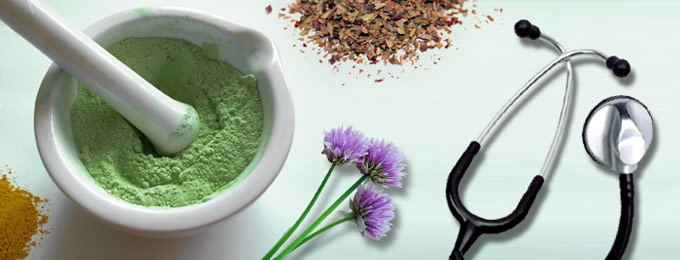People often use the terms holistic and naturopathic interchangeably, but there’s a difference between them. Understanding that difference can help you make the wisest choice in your healthcare journey. Both Holistic and Naturopathic medicine share the tradition and belief that searching for the root cause of illness to treat patients in body, mind, spirit is the most natural and effective approach to health and wellness. Both are considered to be “holistic.” Although the path to a diagnosis and the treatments rendered may differ between the two, homeopaths and naturopaths share the belief that, if given the proper attention and care, our bodies are capable of healing themselves.
Holistic vs Naturopathic
Holistic, or holistic medicine as it is often referred to, is a form of healing that considers the whole person—body, mind, spirit, and emotions—when helping a person have an optimally healthy life. Holistic practitioners believe the goal of health is not to defeat disease, but to achieve a balanced life in those areas.
The terms “homeopath” and “naturopath” mean different things in different states, and in different countries. In states that license naturopathic doctors as primary care physicians, a practitioner of naturopathic medicine is known as a naturopathic physician. A naturopathic physician may practice homeopathy as well as other alternative modalities or methods, such as acupuncture, massage, essential oils, diet, and nutrition. Homeopathy is only one of several treatment modalities used by naturopathic physicians to address your health complaints. In some states, a person who has not obtained the degree of naturopathic doctor from an accredited four-year naturopathic medical school may practice homeopathy but may not call themselves a “naturopathic doctor.” In states that do not have a licensing process for naturopathic doctors, anybody—including lay homeopaths—can refer to themselves as a “naturopathic doctor.” To see which states regulate or license naturopaths, click here.
Holistic medicine practitioners believe that the whole person is made up of interdependent parts from each area—body, mind, spirit, and emotions and that if one part is not working properly, all the other parts will be affected. Therefore, if one area of your life is out of balance—for instance, your diet and nutritional intake, then that imbalance affects or weakens the other areas of your life as well.[1]
Naturopathic, or naturopathic medicine, as it is often referred to, is the practice of emphasizing the prevention of disease by assessing risk factors, heredity and susceptibility to disease, and then by making appropriate interventions in partnership with their patients to prevent illness. These interventions typically involve alternative or natural methods of treatment, such as nutrition, exercise, massage, acupuncture, herbs, essential oils, and supplements.


The diagnostic methods used by homeopaths and naturopaths are very distinct. Homeopaths typically conduct an extensive intake which incorporates a detailed patient health history. Homeopaths tend to ask open-ended questions designed to encourage the patient to describe not only their illness or discomfort, but to describe it in great detail, including the time leading up to the illness or discomfort, and events, food, encounters around the illness. After the initial visit, which can last for up to several hours, homeopaths use that information and patient responses to find a suitable remedy.
Naturopathic doctors, on the other hand, reach a diagnosis by performing a thorough patient history and an appropriate physical examination, much like a conventional or allopathic doctor might do. Based on the information they receive, they may order additional tests, such as labs or imaging, to rule in or rule out diagnoses. Once a diagnosis is determined then they create an individualized treatment plan for the patient.
Scope of Practice
“Scope of Practice” is a term used to describe the limits or activities a professional may use, depending on their training and licensing. For instance, one such feature in a scope of practice is the issue of whether a licensed medical professional has the ability to prescribe medicine, and what kind of medicine they can prescribe. In the United States, only certain healthcare professionals are able to prescribe drugs. There are also restrictions on the classes of drugs they may prescribe or administer. A registered nurse, for instance, may be able to give a patient medication under a doctor’s orders, but they are not permitted to prescribe that same medication.
The scope of practice for homeopaths and naturopathic doctors varies greatly, depending on the state. In states that license naturopathic doctors as primary care providers, naturopaths have a larger scope of practice than their naturopathic colleagues in unlicensed states, even if their training and credentials are the same. According to the AANP, in some states, licensed naturopaths have equal prescription rights with medical doctors. They can perform minor surgery and injection therapies and even deliver babies. However, they must also fulfill state-mandated continuing education requirements annually.
Except for Arizona, Connecticut, and Nevada, lay homeopaths in all states and naturopathic doctors practicing homeopathy in unlicensed states do not enjoy these privileges, nor have these same obligations. These three states are the only states in the country that license homeopathic medical doctors. Arizona is the state with the largest scope of practice in the U.S. Arizona allows naturopaths to treat patients with acupuncture, IV therapy, injection therapy, minor surgery, prescriptive abilities and more. In fact, in Arizona NDs may perform many of the same activities performed by allopathic physicians, such as MDs or DOs.[2]
How Do Holistic Doctors Heal?
For most holistic physicians and medical practitioners, holism in medicine implies having a whole person view. Rather than seeing just an assortment of physical symptoms to treat, they see a “whole” patient to treat. That person doesn’t just exist in their office a disease or series of symptoms. That patient is a person with a life, a family, work, play, hobbies, relationships who interacts within a rich psychosocial context. How well they interact, and how their various systems—mind, body, emotions, and spirit—are balanced is what determines their level of health.


They believe in bacteria, fungus, germs, and all the things that a traditional medical doctor does, but they also believe that an imbalance in any of those four systems can weaken the whole person and allow a disease to enter. They believe that people are unique and that a person’s unique psychology and cultural background also determine how he or she reacts to physical illness, diagnosis, medical advice, and treatment prescribed.
Doctors who understand each of these systems, and how each patient is uniquely created and structured is more likely to be successful at helping the patient develop a balanced system. This awareness of, and respect for, and interaction with patients is what Holistic Medicine is truly about. However, most patients see a holistic doctor as someone who just knows a lot about alternative therapies and remedies. They may or may not be aware of how much their doctor or holistic doctors in generally buck the standard medical system.
Unless patients interact with their doctors and ask as many questions as they do, they may not realize both the term and the practice of “holistic medicine” is becoming antiquated and is being replaced by a more contemporary term—”integrative medicine.”
Dr. Andrew Weil, one of the best-known proponents of Integrative Medicine, says the term keeps the same whole-body-whole-person approach (body, mind, and spirit), including all aspects of lifestyle. It also emphasizes the therapeutic relationship between patient and doctor. However, it makes use of all appropriate therapies, both conventional and alternative. The primary difference is “use all appropriate therapies,” which may often include conventional or traditional medicines. Another term for this practice is Complementary and Alternative Medicine or CAM.
How Do Naturopathic Doctors Heal?
Naturopathic doctors heal naturally, using natural methods, including herbs, essential oils, and a variety of techniques, including acupuncture, massage, nutrition, diet, and homeopathic remedies. Yet their most effective skill is in educating patients about how to take care of their own health through the decisions, lifestyle, and choices they make. Thomas Edison once said, “The doctor of the future will give no medicine, but will interest patients in the maintenance of the human frame, in diet, and in the prevention of disease.”
First and foremost, naturopaths believe in the healing power of nature, a belief that the body has an inherent ability to maintain and restore health. Naturopathic physicians facilitate this healing process by removing obstacles to cure and identifying treatments to enhance healing.
By identifying and treating the cause of the illness Naturopathic physicians remove the root of the problem, rather than just treat the symptoms of the disease. Symptoms are an external manifestation of an internal imbalance and are not the disease itself. When only the treatments are addressed, the disease remains to continue its destruction of the body’s system. While symptom management is important, it is more important to treat or eliminate the underlying cause of the disease.


Think of it like painting a car that has a lot of rust. If you don’t treat and eliminate the cause of the rust, you can paint the car (treating the symptom of the rust) and it will look great, but beneath the paint, the car will continue to rust. If you treat the symptom, but not the cause, you are only covering up the problem, not resolving it. If you are suffering headaches and chest pain from stress, the solution may not be just taking a pill to relax you, which could lead to more issues. The solution may be to change jobs, work fewer hours, get more rest and exercise, or change your diet.
A naturopathic treatment plan uses therapies that are gentle, non-invasive, effective, and do not have adverse side effects. A conscious effort is made to use methods that do not suppress symptoms so the results of the impact of the treatment may be evaluated.
The primary role of naturopathic physicians is not to dispense herbs and nutrition advice or to tell a patient what to do. Their role is also that of teacher and educator. They strive to educate, empower, and motivate patients to assume more personal responsibility for their health. Educating patients is more effective than simply treating patients.
Treat the whole person: Naturopathic physicians identify specific weaknesses or dysfunctions in their patients and tailor treatment based upon the patient’s individual presentation. It is the patient that is in need of treatment, not the disease state or symptom. Naturopathic physicians are interested in finding and treating characteristic symptoms that define the patient rather than common symptoms that define the disease. William Osler, MD, once said, “It is more important to know what sort of patient has a disease rather than what sort of disease a patient has.”
Prevention: It is far easier and cheaper to prevent a disease than to treat a disease. Naturopathic physicians evaluate both subjective and objective information necessary to uncover potential susceptibilities to future disease states in their patients. They can discuss specific lifestyle strategies or nutritional supplementation as a means for disease prevention.
How Do Homeopaths Heal?
Homeopathy is a safe, gentle, and natural system of healing. Homeopathic practitioners use homeopathic remedies to heal, reduce or eliminate a variety of diseases and conditions. Homeopathy works with your body to relieve symptoms, restore itself, and improve your overall health. When used properly, and with attention to the kind of remedy it is extremely safe to use, even with very small children and pets. Homeopathy has none of the side effects of many traditional medications. It’s also very affordable, is made from natural substances, and is FDA regulated. Most remedies are actually sold over-the-counter at health food stores. There are books and charts to help you explore your own healing, or you can see a Homeopathic doctor for a full, professional workup and referral. Many people try homeopathy by using it for things like the flu, a bad cold, or headaches. There are usually charts or guidelines available at the display of homeopathic remedies.
Homeopathic medicines – known as “remedies” – are made from natural sources (e.g., plants, minerals), and are environmentally friendly and cruelty-free. Most are available over the counter in grocery stores, drug stores, health food stores, homeopathic pharmacies, and online. They are also extremely affordable. Homeopathic remedies, when used as directed, are completely safe for everyone – including pregnant and nursing women, infants, children, and adults. They are given in such small doses that they don’t cause side effects.
Homeopathy is used to treat acute illnesses, like colds, ear infections, migraines, and sore throats, as well as chronic conditions, like asthma, depression, autism, and arthritis.
[1] https://www.webmd.com/balance/guide/what-is-holistic-medicine#1
[2] https://www.scnm.edu/programs/doctor-of-naturopathic-medicine/scope-of-practice/
